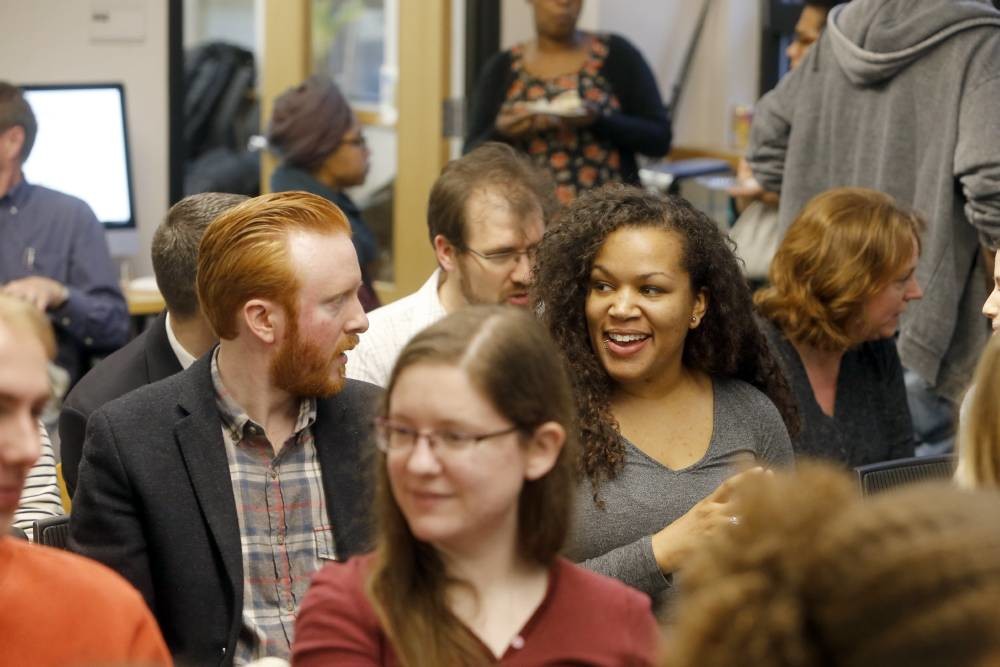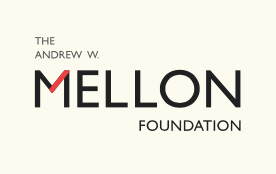
Vanderbilt University’s efforts to strengthen humanities education through an ongoing partnership with three diverse schools will expand to Fisk University in August 2018, thanks to a $1.93 million renewal grant from the Andrew W. Mellon Foundation.
The second phase of the Mellon Partners for Humanities Education project will support Vanderbilt postdoctoral fellowships in the humanities and the humanistic social sciences during the next four years at four partner schools: Berea College, Fisk University, Tennessee State University and Tougaloo College.
“The Mellon Partners for Humanities Education initiative is a crucial component of Vanderbilt’s strategic efforts to improve graduate doctoral outcomes in the humanities,” said Susan R. Wente, provost and vice chancellor for academic affairs. “We are grateful for the generous support of the Mellon Foundation to continue this innovative partnership, which prepares our recent graduates in the humanities for teaching at diverse types of institutions while helping their students benefit from the contributions of Vanderbilt’s new Ph.D.’s.”
The project began in 2013 when the Mellon Foundation awarded a $1.475 million grant to Vanderbilt and its partner schools. The successful grant renewal in 2017 was led by Lauren Benton, former dean of the College of Arts and Science and the Nelson O. Tyrone, Jr. Professor of History.
 The renewal grant funds a total of 12 Vanderbilt postdoctoral positions—each two years in length—at the four partner schools from 2018 through 2022. Postdoctoral fellows will be expected to teach two courses a year and to engage in an assignment or project at the host institution equivalent in effort to teaching a third course. Offerings can be in the digital and public humanities. Postdoctoral fellows also will be awarded research funds.
The renewal grant funds a total of 12 Vanderbilt postdoctoral positions—each two years in length—at the four partner schools from 2018 through 2022. Postdoctoral fellows will be expected to teach two courses a year and to engage in an assignment or project at the host institution equivalent in effort to teaching a third course. Offerings can be in the digital and public humanities. Postdoctoral fellows also will be awarded research funds.
The renewal grant adds a fellowship to be housed at Vanderbilt’s Center for Digital Humanities for the overall enhancement of the postdoctoral experience across the partner schools. “This four-year postdoctoral position will be responsible for organizing events that bring together each cohort of fellows at least once a year for the valuable sharing of ideas,” said Bonnie Dow, dean of humanities for the College of Arts and Science and professor of communication studies. Dow will serve as principal investigator of the renewal grant. She noted that improved coordination of postdoctoral activities across the partner schools should increase collaboration among the fellows and support their professional success.
In addition, the renewal grant will fund project-driven faculty exchanges across two or more of the partner institutions. “Project-driven exchanges emerged in the initial Mellon Partners grant as the most effective way to enhance communication and intellectual collaboration among faculty at the partner schools,” Dow said.
Examples of successful faculty-led projects on particular themes include the McGruder Social Practice Artist Residency, which was organized by Mel Ziegler, Paul E. Shwab Professor of Fine Arts, in collaboration with colleagues from TSU, Fisk, Berea and Tougaloo. In addition, there is ongoing cross-institutional collaboration in the study of slavery, such as previous visits of Vanderbilt faculty and graduate students to Tougaloo and Berea for planned educational events.
Vanderbilt has a longstanding tradition of collaborations with diverse institutions, including historically black colleges and universities. In addition to exchanges with the Mellon Partners, collaborations include the Fisk-Vanderbilt Bridge Program; the Robert Wood Johnson Foundation Center for Health Policy at Meharry Medical College; and the FIPSE Immigration Program with Howard University.